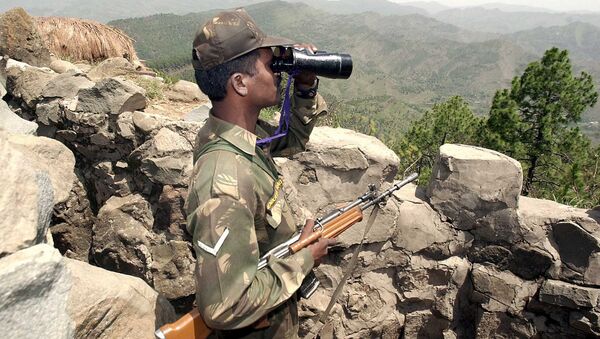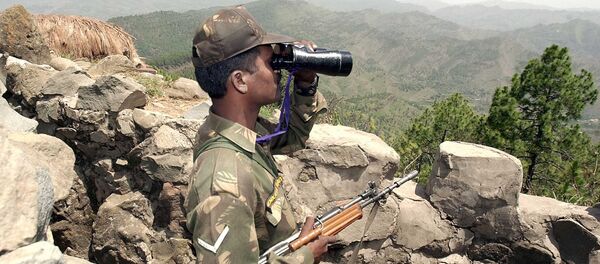According to a statement issued by Pakistan's foreign office, "The foreign secretary called in the Indian High Commissioner this afternoon (August 15, 2016) and handed over a letter addressed to his Indian counterpart, inviting him to visit Pakistan for talks on the Jammu and Kashmir dispute that has been the main bone of contention between India and Pakistan."
"The letter highlights the international obligation of both countries, India and Pakistan, to resolve the Jammu and Kashmir dispute, in accordance with the UN Security Council resolutions," said the statement.
The letter came hours after India's Prime Minister Narendra Modi, during his Independence Day speech, made an unprecedented reference to Pakistan occupied Gilgit and Balochistan, in what was seen as a tit-for-tat response to Pakistan's tirade over India's alleged suppression of insurgency in Indian-controlled Jammu and Kashmir. Modi expressed his gratitude to the people of Balochistan, Gilgit, and Pakistan occupied Kashmir (PoK) “for the way they wholeheartedly thanked me" (for supporting their cause).
Experts see Modi's reference to Balochistan as a strong signal that India's Pakistan policy has undergone a strategic reorientation.
Abhijnan Rej of Indian think tank Observer Research Foundation said "I think the idea of Balochistan being a pressure point for Pakistan has been in the making with this government for some time. Ajit Doval, before he became the National Security Adviser, had explicitly referred to this. What you are seeing now is a diplomatic articulation of this belief — well justified, in my opinion. What we are going to see going forward is more diplomatic signalling from the Indian side whereby the Government of India would try to internationalize the Balochistan struggle, as a counter-response to Pakistan's attempts to internationalize Kashmir. There may very well also be a covert element, but the modalities of how and when would obviously not be in the public realm."
"China is a wild-card viz-a-vis any covert Indian involvement in Balochistan. China has huge commercial as well as strategic interests in Balochistan — and this goes beyond the Gwadar port. India would have to be very careful in how it manages China. At the same time, it may well be the case that Chinese interests there become collateral damage to any covert conflagration between India and Pakistan in Balochistan. This is a possibility the strategic community is well aware of."





